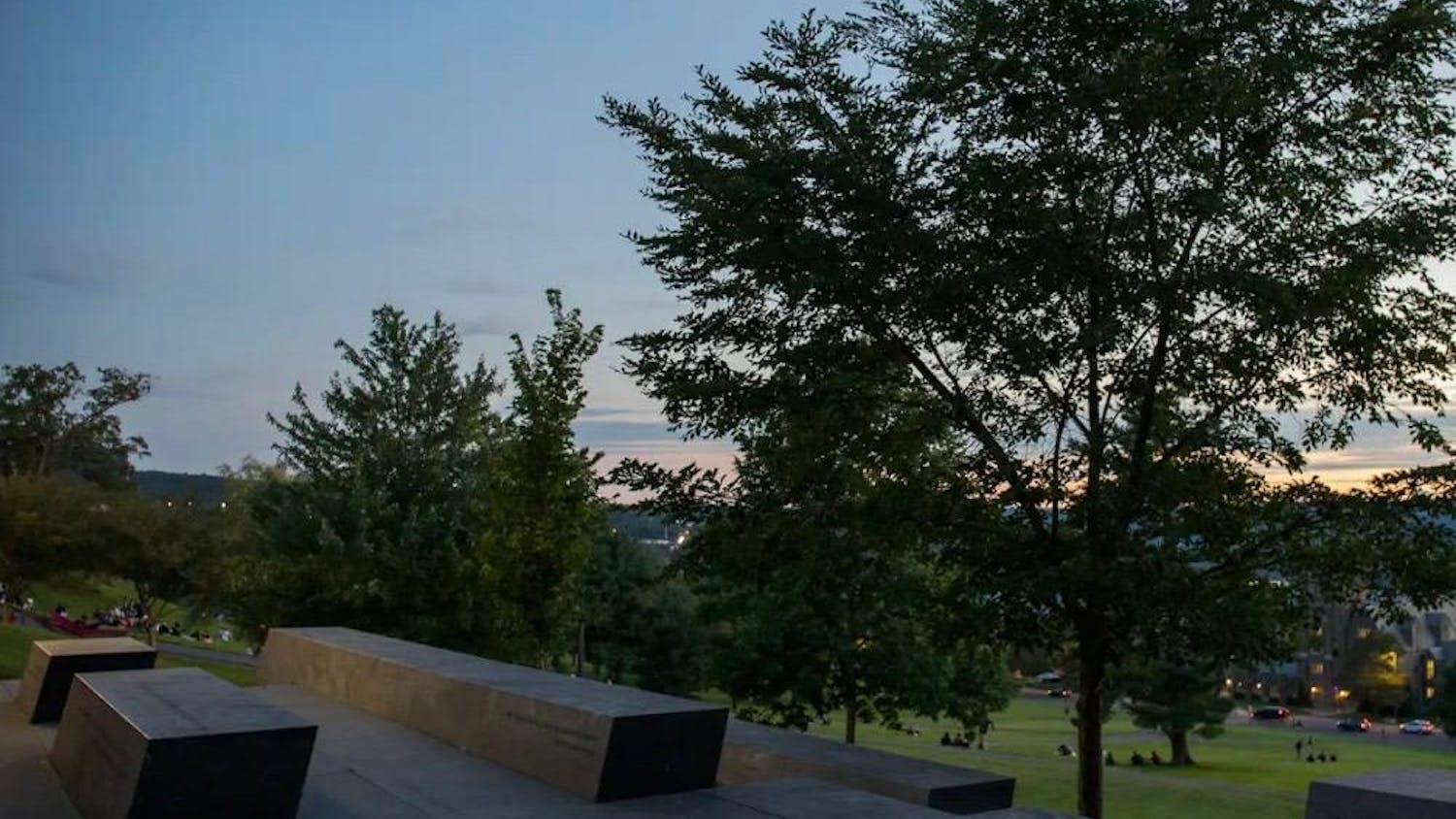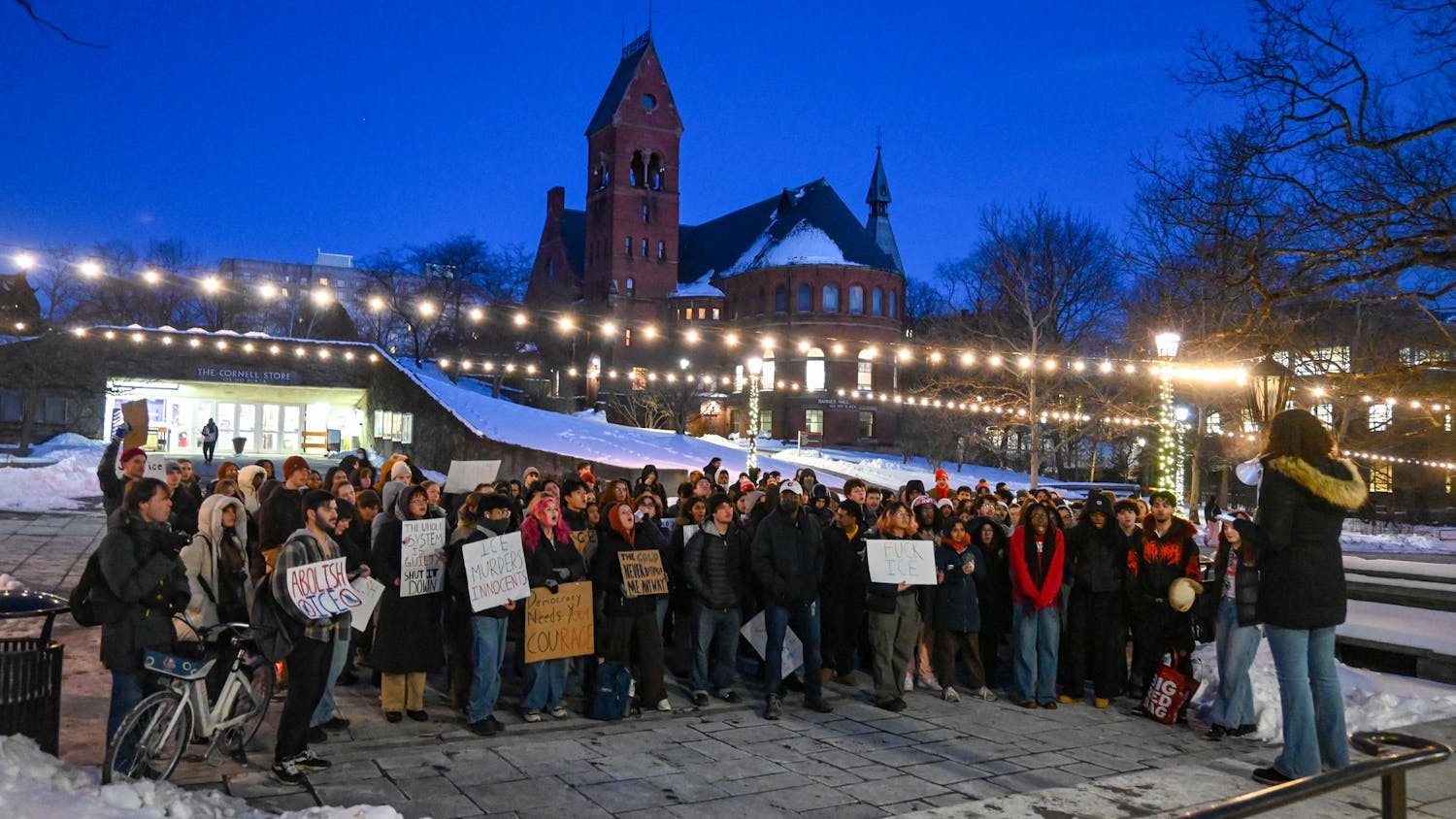In its last meeting of the semester, the Student Assembly met for more than four hours in three separate back-to-back meetings as it ended its byline funding cycle with a lengthy debate over raising the student activities fee.
The student activities fee is a mandatory fee that all students pay to fund student organizations. The fee amount is decided by the Student Assembly at the end of its two-year byline funding cycle, and approved by the University president. Currently, the annual student activities fee is $309 per student per year. Byline funded organizations each get a fraction of the student activity fee, which they use to fund their projects or subsidiary campus organizations.
The byline funding cycle had already become controversial within the assembly multiple times this semester. The S.A. heard multiple appeals by byline organizations against the funding decisions given to them by the appropriations committee, cut an organization from byline funding altogether and replaced its vice president of finance midway through the funding cycle.
Vice President of Finance Valeria Valencia ’23 presented the new student activity fee — $310, a $1 increase from the last byline cycle.
S.A. bylaws prevent the assembly from adopting appropriations committee recommendations at the same meeting where they are introduced. To follow this rule and still finalize the fee, the student activities fee proposal was reintroduced at a second meeting that night.
But contentious debate ensued. Ultimately, the S.A. ended up meeting for another two hours, called a third meeting, dropped to less than two-thirds of total members in attendance and passed its byline funding just before 9 p.m. by the exact number of votes required.
Some representatives, including Undesignated At-Large Representative Lucas Smith ’22, thought that discussion was needed before a vote on byline funding could pass.
“I think it would’ve been a really, really bad precedent for the assembly to have had no discussion, even if we had very little that we tangibly wanted to say,” Smith said.
Other representatives, like College of Arts and Sciences Representative Everest Yan ’22, said he felt more strongly about the process that creates the proposed student activities fee.
“Throughout this semester in our meetings we kind of passed along the byline reports noting that we might cut later, and raising a lot of allocations but [with] promises that we would lower the fee eventually,” Yan said. “Where did we go wrong? Where did we fail our constituents?”
Other members later argued that arguments for cutting organizations’ funding were unfair because COVID-19 exposed organizations to significant pressures.
“There has been a general trend of people wanting to cut organizations funding,” said Arts and Sciences Representative Claudia León ’23. “I feel like it should have been approached with a lot more compassion because we’re coming out of a pandemic.”
Undesignated At-Large Representative Benjamin Luckow ’24 defended the proposed student activities fee as actually saving students money because, given inflation rates, $310 is a roughly $20 discount from what a fee of $309 meant to students two years ago. $309 in 2020 would be $330 at present.
To resolve concerns over raising the fee, Undesignated At-Large Representative Morgan Baker ’23 and Students with Disabilities Representative At-Large Duncan Cady ’23 proposed cuts, which would have reduced the fee to $309, the same as last cycle.
The proposal suggested reducing the $310 fee by cutting 12 cents from athletics and physical education department funding, 38 cents from Student Activities Funding Commission funding — cents only added to their funding for clerical reasons, therefore irrelevant to their operations — and 50 cents from Student Assembly funding.
This compromise, however, along with the full byline proposal, failed to pass.
Had the assembly been unable to pass the byline in its third meeting later that night — which was necessary because S.A. bylaws prohibit failed resolutions being reintroduced at the same meeting — byline funding would have reverted to its 2020-2022 allocations. This would have nullified all club requests and byline allocations processed by the assembly over the past three months.
Many members were shocked by how close the assembly came to not passing a budget.
“Not setting a byline budget has never happened before. So, just being blunt, [this is] pretty embarrassing,” Valencia said. “As an assembly, it’s one of the few things that we’re tasked to do.”
The lack of willingness to compromise also prompted dismayed reactions from the budget's sponsors and other representatives, including Cady and S.A. President Anuli Ononye ’22, who was chairing the meeting and chastised members who voted to extend debate but refused to motion to cut funding from specific organizations.
“I think this has been incredibly disrespectful to all of our byline funding organizations,” Ononye said.
As hours of discussion continued, some representatives said they felt the debate was pointless. Additionally, the suddenness and length of Thursday’s disagreement came as a surprise, since the funding allocations debated that day in the final proposal had all been debated separately in prior meetings, and even raised as a lump sum of $310 earlier in the day’s first meeting.
“It was just a lot of contrarianism,” León said. “It felt like disagreeing just to disagree.”
Ultimately, in a roll call vote at the end of the night’s third meeting, the assembly passed its byline funding and $310 student activity fee. The vote passed only once Baker successfully motioned to allow two representatives who usually recuse themselves on byline funding votes — President Ononye and Vice President of Finance Valencia — to now vote.
Only three of the 18 representatives present voted no: Yan, Eisman and Vice President of External Affairs Annette Gleiberman ’22. Yan said that his final ‘no’ vote was about the principle of not raising fees after campaigning on lowering them.
“Even 1 cent overspent is a travesty in and of itself, because it shows that we disregard the tax that we’re levying on students,” Yan said.
To some representatives who voted for the $310 student activities fee, it seemed unwise for representatives who opposed the fee to refuse a compromise which would have returned the fee to $309.
“There’s an importance in recognizing when you can reach [a] compromise, and when you can speak out to find the best results for the student body, and when you’re just making a statement to make a statement,” Cady said. “I really hope that members realize the weight in [these] decisions.”











